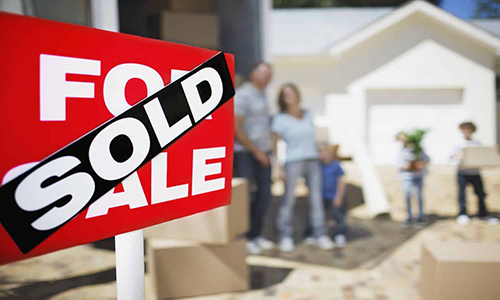Should you buy a house now or wait? 6 things to consider when buying a property

We looked at important considerations in buying a house and came up with 6 critical questions you should ask yourself before you commit to buy a house this year. Let’s dive in!
1. Can you afford the mortgage?
The First Home Loan Deposit Scheme (FHLDS) is great! If you’re a first-home buyer (earning up to $125,000 alone or up to $200,000 with your partner), you only need to save a deposit of five per cent to buy a house. If you’re reading this, chances are, you already have or you will have, for certainty, that 5 per cent. But what about the payments or repayments?
Unless you’re getting a fixed rate home loan, you’ll have to take into account the changing interest rates. You should consider if you can still make the payments when interest rates go up in the future. If you’re not sure you can get by should interest rates go up even by 5 per cent, then it’s not time for you to buy a house yet.
2. Will your financial situation change in the near future?
Obviously, this is something you should seriously factor in when buying a property.
Wait till your financial situation has stabilised before you buy a house. This means no changing of jobs and source of income, reworking of financial responsibilities, and others.
A stable financial situation also involves having an emergency fund you can use in case of medical emergencies and other unforeseen crises. If you don’t have one, build it first before you take a home loan.
3. What is going to be your savings rate?
Will buying a house cost less than renting for you? Make sure to make a comparison of your savings rate before and after a purchase. If your savings will be the same even after you buy a house (and with your mortgage payments counted as savings), then that’s a good reason to buy a house now rather than later.
4. Will your budget cover property taxes?
Aside from stamp duty, which is one of the upfront costs of buying a house, you also have to pay for recurring land tax and council rates.
Whether you are exempt from paying these taxes depend on your location, exact nature of the transaction, and many others. You should check with your property accountant if you or your purchase is eligible for any.
If you aren’t, you should be prepared to pay property taxes on top of your mortgage payments or repayments.
5. How long do you plan to stay in the property?
Your property is treated as your principal place of residence for up to six years, even if you move out or rent it out within that period (selling the property within this period also exempts you from Capital Gains Tax from any profit you’ll make).
So, if you’ll have to buy another property before the six years is up, your new purchase can’t be eligible for land tax exemption.
That said, make sure the property you’re considering buying is future-proof. Statistics show that more and more young families with children are moving to the suburbs.
In other words, even if you’re single now, you might want to consider buying a house in the suburbs where you’ll most likely want to live once you settle and have children of your own.
6. Is the location future-proof?
Sure, you love Victorian houses and you must love what you’re going to buy, right? Right, but remember that you can change anything about the house but you can’t change the location.
Jobs tend to change more than your house. So consider buying a house in an area with plenty of job opportunities, too. Short commute to your job is always a good reason (especially in terms of savings rate) to buy a house but job opportunities could be more important. Even if you have a stable job now, we never know what the future may bring.
Whatever you do, make sure you buy a house!
Real estate property is wealth that appreciates in value. Whether you decide to buy a house now or wait till later when Australia’s property market has clearly stabilised, buying your own home and building your wealth should be your top priority.
Source: Article written by Ershad Ullah, a trusted professional at Chan & Naylor.